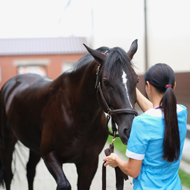
Groves’ dwarf lemur lives in southeast Madagascar
Scientists have identified a new lemur species, the Groves’ dwarf lemur, in southeast Madagascar.
A team from Omaha Zoo in Nebraska, working with the Suny Polytechnic Institute and Global Wildlife Conservation, analysed its DNA to confirm the animal is a distinct species.
The lemur is found in two of Madagascar’s national parks - Andringitra, which is a mixture of grassland and forest; and Ranomafana, characterised by a rainforest in a mountainous region. On average, the animal is just six inches long with a 10-inch tail, which makes it smaller than a typical North American squirrel.
Scientists named the newly discovered species in honour of the biological anthropologist, Professor Colin Groves, who passed away last year. It is the twenty-fourth lemur species to be discovered since 2006 by the zoo’s conservation genetics department, with its Malagasy partner, the Madagascar Biodiversity Partnership.
Writing in the journal Primate Conservation, scientists said the conservation status of the species is currently unknown. However, its presence in two national parks and a protected corridor suggests it is ‘possibly more secure’ than species outside of protected areas.
Nonetheless, anthropogenic deforestation is a country-wide threat and national parks are not immune to the risks. Whilst it is not known if this species is hunted for bush meat, it is ‘certainly a possibility,’ the authors wrote.
Further research will be needed to determine its conservation status so that protective measures can be put in place.
The research team added: ‘The continuing identification of new primate species in Madagascar's remaining wild places highlights the need to protect this habitat from additional disturbance by human encroachment.’
Image © Dr. Edward E Louis Jr.



 The BEVA has opened two new roles on its Nurse Committee.
The BEVA has opened two new roles on its Nurse Committee.